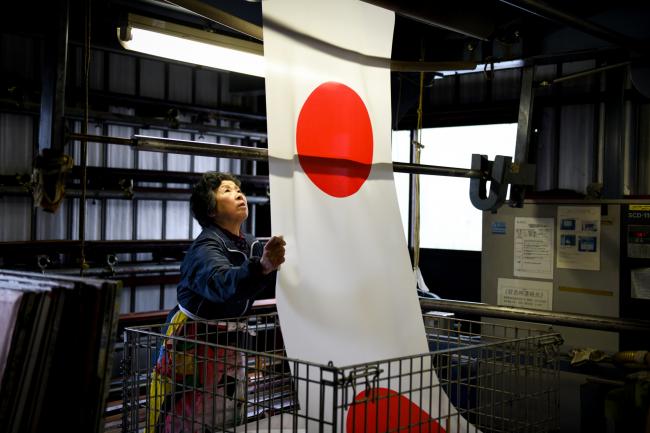(Bloomberg) -- Another quarter of stronger-than-expected growth did little to ease concerns that trade tensions and a tax hike are set to slow Japan’s export-driven economy.
Gross domestic product defied expectations again, growing an annualized 1.8% in the second quarter from the previous three months, as a surge in consumer spending and better-than-expected capital investment offset an export slump.
That follows revised growth of 2.8% in the first quarter, adding up to Japan’s two best quarters since the first half of 2017.
Yet resilient domestic demand won’t stop the U.S.-China trade war from escalating and roiling global markets, and it remains to be seen whether it survives a domestic sales-tax hike set to take effect in just two months.
"The second quarter was good, but I see far more uncertain factors than optimistic ones when I look beyond this summer," said Yuichi Kodama, chief economist at Meiji Yasuda Life Insurance Co. in Tokyo. “The results made the economy look better than it is in reality."
Consumption Boost
Take consumer spending. It rose the most in two years and was the biggest growth driver during the second quarter. Yet it got a big lift from a 10-day public holiday and shoppers making purchases of durable goods such as air conditioners ahead of the October tax increase.
Prime Minister Shinzo Abe’s government has prepared a series of measures to soften the blow for consumers, after a bigger hike in 2014 sent consumption into a tailspin. But spending isn’t likely to continue at the pace seen in the second quarter, especially after the tax hike takes effect, and particularly if accompanied by a trade-war fueled global downturn.
Capital spending has held up so far despite the export slump, thanks partly to the need for labor-saving technology and ongoing demand for redevelopment ahead of the 2020 Olympics. Capital investment rose 1.5% from the previous quarter, nearly twice as much as economists forecast.
Exports Fall
Still, the trade war and recent market turmoil are weighing on sentiment. Japanese exports, a key driver of the economy, have already fallen for seven straight months. A stronger yen poses risks to the profits of Japanese exporters, which may hit capital investment at home.
Exports fell 0.1% in the second quarter from the first, and net exports actually cut 1.2 percentage points from annualized GDP figure, though that was partly due to a rise in imports, particularly oil and energy.
What Bloomberg’s Economists Say
“Looking ahead, fiscal stimulus and last-minute purchases ahead of the October sales-tax increase are likely to support growth in 3Q. The recent solid consumption means last-minute buying may be weaker than was the case before the last sales-tax hike in 2014.”-- Yuki Masujima, senior economistClick here to read the report
Another factor driving the unexpected second-quarter growth was public spending, which topped estimates. Economists pointed to the delayed impact of a supplementary budget in the fiscal year ended in March.
Growth is expected to continue in the third quarter, particularly if consumers keep spending ahead of the tax increase, before a sharp contraction in the fourth. Still, if the U.S.-China trade war continues, or worsens, all bets are off.
"We shouldn’t be optimistic about the outlook for the economy because of today’s data," said Yoshiki Shinke, chief economist at Dai-Ichi Life Research Institute. "Trade tensions are escalating and we have a sales-tax hike coming up."
